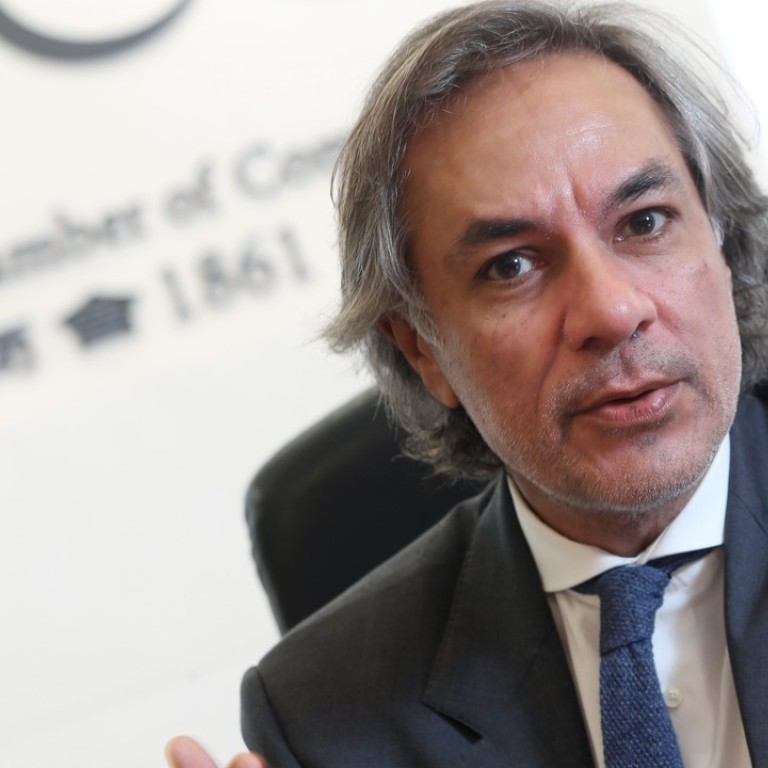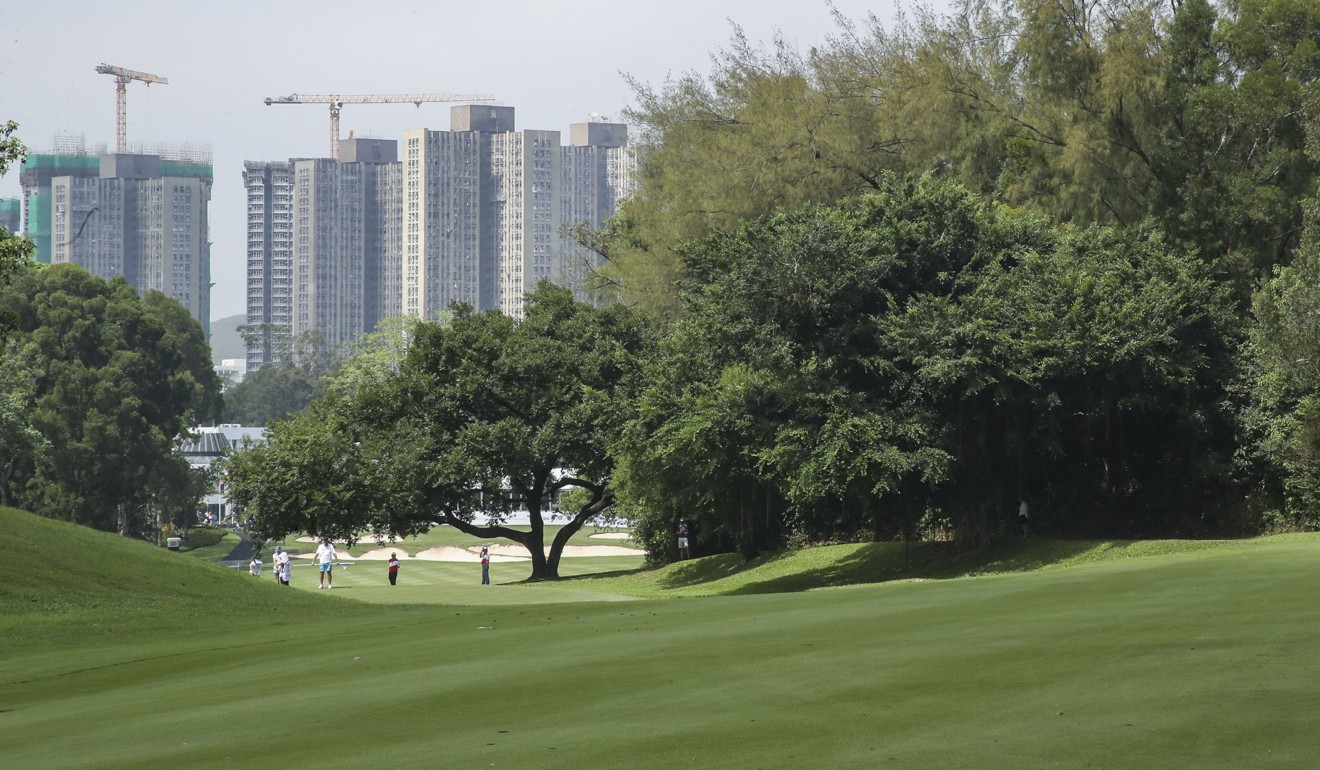
Plan to bulldoze and develop Hong Kong Golf Club in Fanling ‘a bit of a red herring’, says leader of city’s biggest business chamber
Aron Harilela says the controversial topic is a ‘a silly deflection of the fundamental issue’ of the housing shortage, calling for development on reclaimed land and brownfield sites
The government’s fraught suggestion of bulldozing an elegant golf course in Fanling to make way for homes is “a bit of a red herring” and “a silly deflection of the fundamental issue”, the leader of Hong Kong’s biggest business chamber has said.
In his first interview since succeeding Wharf’s Stephen Ng Tin-hoi as chairman of the Hong Kong General Chamber of Commerce in May, Aron Harilela said the government should pump land into the market to solve the housing crisis, with high property prices and worsening shortages causing ripples which affect businesses and the city as a whole.
Land supply was among many regulations the government must reform as outdated regulations, red tape and government departments not working together effectively had eroded efficiency, Harilela said.
Are golfing elites pitched against public good in Hong Kong housing debate?

Golf club vows not to cede any part of Fanling course for flats
Harilela said the chamber wanted to see action soon.
“We would like to see the government come up with concrete measures after doing yet another consultation on land supply, because any further delay will exacerbate the situation,” he said. “I rarely play golf – well, I am a bad golfer, and not a member of the Fanling golf course. The golf course is a bit of a red herring and a silly deflection of the fundamental issue.
Hong Kong should continue to look at its own assets, which made Hong Kong good
“The heart of the issue is the government has to change the land policy and release reclaimed land and look at brownfields. The housing problem has a rippling effect: people don’t want to live in a tiny apartment; the talent pool will decrease; people leave here rather than coming here. If you’re at the schools or universities now, how will you be motivated to work harder to get a degree and a good job, as you’re going to live in a tiny apartment? We have seen political and social unrest, we need to make the situation better.”
But Harilela, the only son of late self-made hotel magnate Hari Harilela, is confident about Hong Kong. The family is investing in a 211-room boutique hotel, The Hari, in Wan Chai, due for completion in 2020.
Nevertheless, he said the construction had left him frustrated at the “ridiculous bureaucracy, a lot of red tape and a very slow-moving government”.
Time for action, not just debate, in tackling housing crisis
The hotel’s ground floor had to be turned into a car park, the Transport Department stipulated, to ease transport flow in the area, he said. He charged that that had effectively destroyed the ground floor’s commercial value – and the walkability of the neighbourhood – and resulted in a “shoebox” reception.
He said the department and the Environmental Protection Department did not work in tandem or look at anything beyond rules and regulations.
With Hong Kong ranked in some surveys as lagging regional rivals such as Singapore and Shanghai in economic competitiveness, Harilela called for an end to political bickering and filibustering.
Quoting Summer Sanders, the American former Olympic swimming champion, Harilela said “it is not really about the competition”, and that “your biggest challenge in a race is yourself”. He said there was a lesson there for Hong Kong.
Hong Kong's housing future may lie in learning lessons from Singapore’s past
“Hong Kong should continue to look at its own assets, which made Hong Kong good,” he said.
Harilela also called for a relaxation of rules around importing labour. He said a common concern among the chamber’s about 4,000 members was that labour shortages which used to only afflict a few industries had spread to others.
Hoarding denial by Hong Kong developers raises smile in hard times
With the economy at a growth bottleneck, he said the central government’s ambition to turn Hong Kong, Macau and nine cities in Guangdong province into an economically dynamic “Greater Bay Area” would be a way out for Hong Kong investors.
“It’s a bigger market, but the government needs to facilitate the flow of everything, from ideas, people to capital,” he said.

